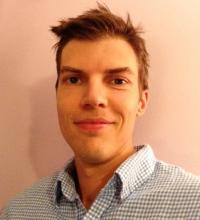Colleen Kirtland and Harish Krishnankutty speak with firsthand experience about the difficulty of the "upstream swim" that many QA teams face in trying to elevate QA to the position of a trusted business partner. We spoke with Colleen about how testers can face this challenge.
Colleen Kirtland and Harish Krishnankutty speak with firsthand experience about the difficulty of the "upstream swim" that many QA teams face in trying to elevate QA to the position of a trusted business partner. We spoke with Colleen about how testers can face this challenge.
Noel: I really love your upcoming session's title, "Swimming with Salmon: Lessons in Moving Quality Upstream." I'm curious, was quality more upstream in the past, and you're calling for a return to the forefront, or do you feel that quality has unfortunately always been somewhat on the back burner - and it cannot continue to sit there?
Colleen: I think it has always been a goal of quality to influence the course by inserting ourselves upstream. We've all heard the adage "you can't test in quality, you need to build it in." Many organizations still focus on quality control. Detecting defects during test execution definitely beats having end users find defects, but it's more of a passive approach than early involvement and engagement. I am motivated by the prospect of not only creating good products, but of changing people's minds. There's a tremendous amount of passion and caring we can exert every day in this profession and that's what has kept me ticking.
Noel: You mention the danger of "salmon teams losing to currents that impede continuous improvement and strategic planning." What are these currents made of, and whose job is it to help the salmon along their way through them?
Colleen: Many currents can impede continuous improvement but I think the biggest one is having too tactical a mindset. Heroics and fire-fighting are sometimes necessary in short bursts, but we need to think about longer-term effects of the decisions and trade-offs we make when we do that. Under duress, organizations simply can't mature. It's everyone's job to help the salmon. Did you know in the "salmon run" there is a scientific term called magnetoception? It is the instinct that all salmon have in order to return to their natal origins, literally the exact same place they were born. What I'm saying is that the whole team swims together. It's not just one person's job.
Noel: Your abstract mentions that you and your speaking partner Harish Krishnankutty have firsthand experience with this battle against the current, and that it took you a long time to "elevate QA to the postion of a trusted business partner." Could you go into why the challenge took a while, and perhaps what others in a similar struggle might be able to do to shorten this struggle?
Colleen: I think in my current organization it is taking longer than it would it some other organizations. At the same time, I think the evolutionary rather than revolutionary approach will permeate deeper than I've seen it do in other organizations. We're still evolving today. QA needs to be adaptable to the millieu in which it lives.
Noel: You also mention how a "fun, vibrant team culture" can make this task easier. I love writing about culture, especially among agile development and testing teams, and I really love that there is a need for this kind of culture. It's not just a bonus or a want. How does this creative, inspiring culture lead to increased quality, in your opinion?
Colleen: It all goes back to caring. If we don't care, then we are passive and we let things happen to us. If we care, that is the catalyst for creativity and innovation. The pleasure of creating is akin to the perfect merge between art and science or technique. One of my avocations is classical piano. There's a certain rigor and discipline required to play more challenging pieces. This is the lexicon and skill that's the basis for more advanced artistry and interpretation. If I ever can achieve mastery, (which I'm definitely still working at!) then I've also created something beautiful. Artistic beauty I think is the highest expression of quality and as humans, we're all inspired by it.
Noel: For those who are able to attend this session, it sounds like there really are a lot of actions that can be taken, and need to be taken to boost quality. What do you hope attendees are able to take back to their own projects, and where's a good place to get started and hit the ground running when they return home?
Colleen: Integrate proven QA practices into your daily life and live them. We'll show you a few structures and ideas that helped us get started (like how we dealt with enterprise requirements and metrics). We want to impart with you our passion to never give up. If you do, the tide will push you down and entropy will take over.
Industry veteran Colleen Kirtland is passionate about QA and the role of technology in helping to effect positive social change. As technology transforms the way we do things, there is a need to include not only solution quality but also human factors and organizational behavior as aspects of measuring quality. As an evangelist of proven quality practices, Colleen has served both as a leader and individual contributor in multiple companies and industries. She currently works as enterprise QA practice lead at The Capital Group Companies. Every day, she is motivated by the possibilities of making things better.



